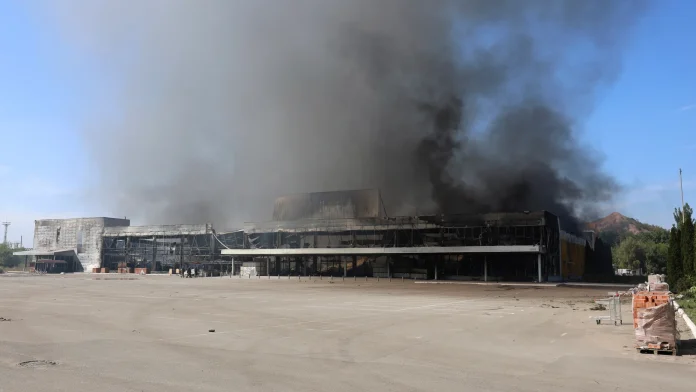The operation by the Armed Force of Ukraine (AFU) to invade the Kursk region was based on the assumption that Russia would redeploy its troops and ease pressure on the eastern front; however, so far, the Russian forces have only intensified their pressure, according to The Guardian.
Two weeks ago, Ukrainian military forces conducted a sudden incursion into Russia, in the Kursk region, but now the Ukrainian command is attempting to find a balance between capturing territory within Russia and losing ground in the very heart of the eastern front in the Donetsk region.
The advance into Russian territory has been as much as two miles per day; however, this month, Moscow’s forces have moved forward by approximately three miles, as the Kremlin focuses on capturing the centre of Pokrovsk, according to Ukraine’s Commander-in-Chief, Oleksandr Syrskyi. The outcome of the actions remains uncertain, as Hanna Shelest, a senior fellow at the Centre for European Policy Analysis, suggests the reality is that Russia has likely not redeployed sufficient forces from the eastern flank as had been hoped.
Earlier this week, the Institute for the Study of War (ISW) reported that Russia is only moving select elements of its irregular forces to the Kursk region. Meanwhile, the Kremlin maintains that there will be no withdrawal of Russian military units involved in combat in such a critical area as Pokrovsk. This situation raises questions about the effectiveness of the Ukrainian armed forces’ incursion into the Kursk region.
Conversely, the administration of Pokrovsk is currently asserting that the authorities need to evacuate the residents, as Russian troops are now nearly at the city due to a slight weakening of Ukrainian forces’ resistance.
On Friday evening, President Volodymyr Zelensky highlighted the link between the Kursk region and Pokrovsk, explaining that the Ukrainian army is focused on “destroying the logistics of the Russian army and depleting their reserves.” Nevertheless, there are still some disagreements with the president’s stance.
For instance, Oleksii, a member of the infantry, said the following: “We should defend what we have. Attacking Kursk takes good soldiers away from Pokrovsk – and if it does divert some Russian troops, it only moves the problem of their numbers from one place to another. My mother always told me: stand your ground.”
Estonian intelligence reported on Friday that there are no indications that Moscow has gathered sufficient forces for a full-scale counter-offensive, and that its response remains poorly coordinated, possibly reflecting a prioritisation of the Donetsk region.
The consequences of the Ukrainian invasion have already made themselves known. The ballistic missile exploded in the city of Sumy, the Ukrainian city closest to the place of incursion across the border. The footage of the fire and burnt cars appeared on social media. Also, it has been reported that hospitals in the city are becoming overwhelmed with frontline casualties.
